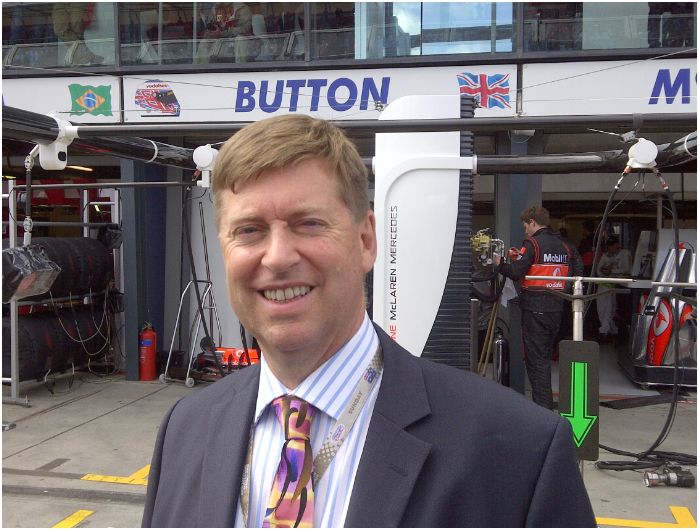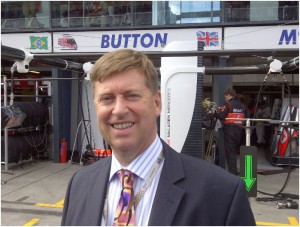19th March 2013
High tech British industry behind the F1 pizzazz

I’m definitely not a “petrolhead”, but I am fascinated by all the razzmatazz that goes on around Melbourne’s iconic Grand Prix, bringing together the celebs, the politicians and the business suits. But the aspect which interests me most of all, is the extraordinary research-intensive industry that lies behind the world of F1, much of it based in the UK. Last year I had the chance to visit the Williams pit before the race and was briefed on how the teams are innovating on a daily basis throughout the season.

What other industry spends 30% of its turnover on R&D? And Motorsport is an industry in its own right, worth about Aus $9 billion a year in the UK. In fact eight of the twelve F1 teams are based in the UK. Not just the ones that you associate with Britain like McLaren and Williams, but also famous overseas names like Renault and Mercedes.
Much of this industry is clustered in the Motorsport Valley in the English Midlands, around Oxfordshire, Warwickshire and Buckinghamshire, centred on the famed Silverstone circuit. Some 4,500 companies employ nearly 40,000 people, two thirds of them qualified engineers.
Motorsport can play a valuable role in making science sexy, drawing young people into those demanding school subjects which in many western countries are seeing declining popularity. The industry works closely with schools and universities, and you can now study Motorsport engineering and management at some 15 British universities.
It’s just the kind of high-tech industry that countries like ours need to aspire to, to remain competitive in the twenty-first century. There are spin-offs not just to the broader motor industry, but to other not directly connected sectors like defence, marine and aerospace.
You occasionally hear people say “Oh yes you can produce a few racing cars, but Britain doesn’t make ordinary cars anymore”. Well, actually, we still make every 40th car in the world, in an industry employing 300,000 people and exporting 70% of its output. In fact automotive is our leading manufacturing export sector. And it’s not just prestige marques like Rolls Royce, Aston Martin and Jaguar. We even export Nissans to Japan.
With British involvement in so many teams, it was hard to know who to cheer for at Albert Park this weekend. But I was delighted to hear “God save the Queen” played on the podium to celebrate Lotus’s win in the first race of the new F1 season.